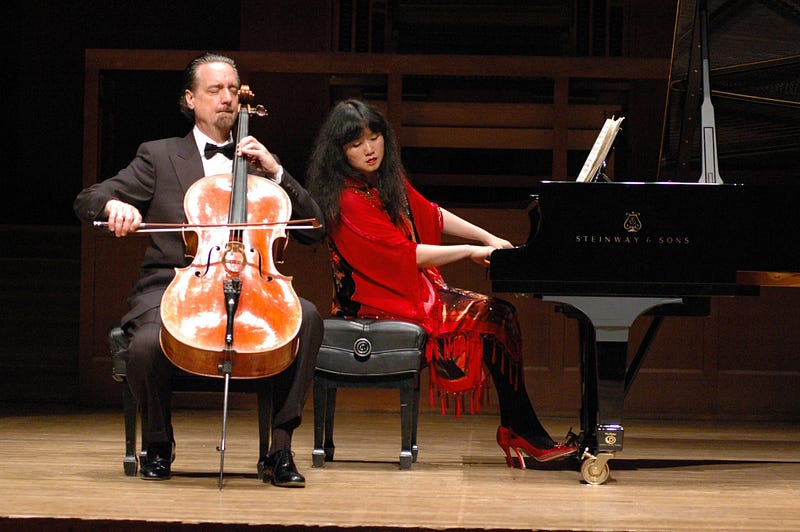
The Spectator
had the opportunity to interview classical pianist Wu Han in light of her upcoming concert with her husband and cellist David Finckel. Named the “power couple of chamber music” by
The Wall Street Journal
, the two will be joined by violinist and founder of the Emerson String Quartet, Philip Setzer. The three will perform a set of concert pieces in Wellin Hall on Feb. 23 at 7:30 p.m. Admission is $20 for adults, $15 for senior citizens and Hamilton community, and $5 for students.
Q: How has your passion for music and performance shaped your career?
WH:
The honest truth about being a performing artist is that it is a 24/7 job. Because regular practice is imperative to maintain one’s playing at the highest level, and since there is always new repertoire to be learned, musicians’ “office doors” never close and their minds never rest! The work is truly never done. So, if one isn’t passionate about performing and the art form in general, it is quite simply impossible to survive. The fuel required to drive a performing career is a deep and unerring devotion to music and to our audiences. Such passion and devotion are essential in order to weather the most difficult aspects of a performance career — including challenges like long travel days and being away from one’s home and family for long periods of time.
Q: How would you describe the style of your musical performances?
WH:
The piano trio genre of the chamber music art form is one of the most intimate and passionate of any of the possible instrumental combinations. The three individual voices — piano, violin and cello — have to converse together, inspire each other and sometimes even interrupt one another! Our trio has been performing together for more than 35 years, and we are all very dear friends, so we have an incredibly intimate style.
Q: How has the chemistry and friendship between you, close friend Phillip Seltzer, and husband David Finckel affected your performative experience?
WH:
As I mentioned, we have been so fortunate to be able to make music together for more than 35 years. The time we’ve spent together has helped us to develop a remarkably uncommon bond of trust, as well as the equally un- common ability to communicate intuitively and effortlessly through a deep understanding of each others’ playing. It is quite rare to have such long-term relationships as performers onstage and we are very grateful for the time we’ve been able to spend making music together.
Q: What compels you to support young artists on and off the stage around the world?
WH:
As the beneficiaries of the energy and time devoted to our own development as artists by many older, generous musicians, it is simply a part of our own human nature to want to share our knowledge with the next generation of musicians. The art form cannot continue to flourish without this intergenerational connection. It is now the time in our careers to pass down what we have learned and we hope that our artistic journeys will be a source of inspiration for the next generation of young artists.
Q: What can audience members expect to hear from your upcoming performance this week?
WH:
We will be bringing one of our most extraordinary piano trio programs to Hamilton College, featuring the last two piano trios from the pens of two of the most revered musical giants, Beethoven and Schubert. These trios are utterly monumental works of the repertoire. Performing just one of them is the artistic equivalent of climbing Mt. Everest — and we will have to climb to these great heights twice in the same day! The reward is similar to summiting the world’s highest peaks, as we together experience the most glorious pinnacles of human artistic achievement. This highly demanding program is well worth the reward of reveling in the world’s finest art.

























